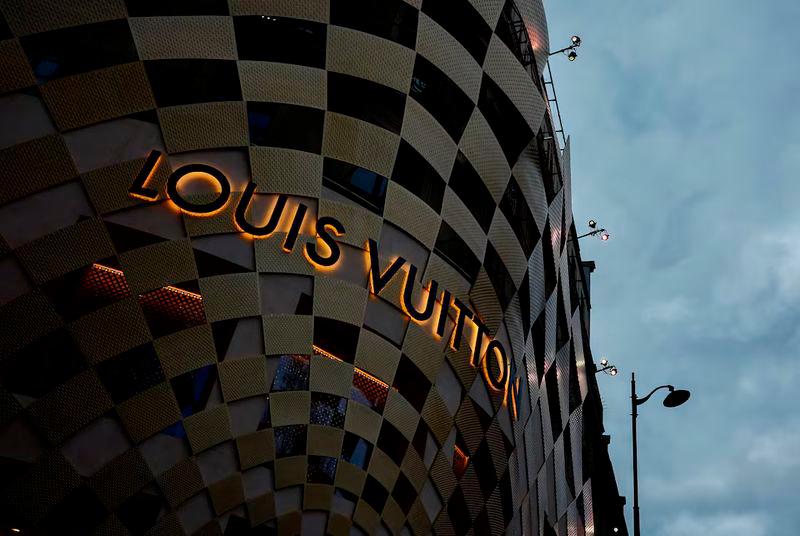PARIS: LVMH briefly lost its position on Tuesday as Europe’s largest luxury company in terms of market capitalization after being overtaken by rival Hermes (HRMS.PA) on investor pessimism after disappointing first-quarter revenue from the sector bellwether.
LVMH (LVMH.PA), whose high-end brands include Louis Vuitton and Dior, jewellery brand Tiffany & Co. and beauty chain Sephora, missed expectations for first-quarter sales as U.S. shoppers curbed purchases of beauty products and cognac while sales in China remained weak.
LVMH shares dropped over 8% in morning trading, bringing its market capitalization down to 243.9 billion euros, compared to 244.4 billion euros for Hermes, before LVMH recovered to 247 billion euros.
Shares across the sector traded lower, with Gucci-owner Kering (PRTP.PA) and Hermes down 2.6% and 1.5% respectively, Swiss-based Richemont, which owns Cartier, was down 2.5% while Italian cashmere brand Brunello Cucinelli was down 2.6%.
A 3% decline in LVMH’s first-quarter sales - well below analyst expectations for 2% growth, pointed to another difficult year for luxury companies following President Donald Trump’s recent tariff announcements, which have sparked fears of a recession.
The performance pointed to “a more difficult trading environment for the broader luxury sector,“ said RBC analyst Piral Dadhania, who lowered his organic sales forecast for LVMH this year to flat from growth of 3% expected previously, citing the 4% first-quarter sales miss.
Investors had been hoping the luxury sector would pull out of its slump this year, but trade tensions have raised concerns of a global recession.
Improvement seen at the end of 2024 now seems an anomaly as LVMH’s key fashion and leather goods business, home to the Louis Vuitton and Dior brands, reverted to 5% sales declines, noted Deutsche Bank.
Shares of luxury companies have traded lower since the end of March, with LVMH, Kering and Burberry all down 14%, Richemont down 13% and Hermes down 5%.
Bernstein analysts recently lowered their sales forecast for the sector this year to a decline of 2%, against a previous forecast for 5% growth, a drop that would mark the industry’s longest downturn in over two decades.









